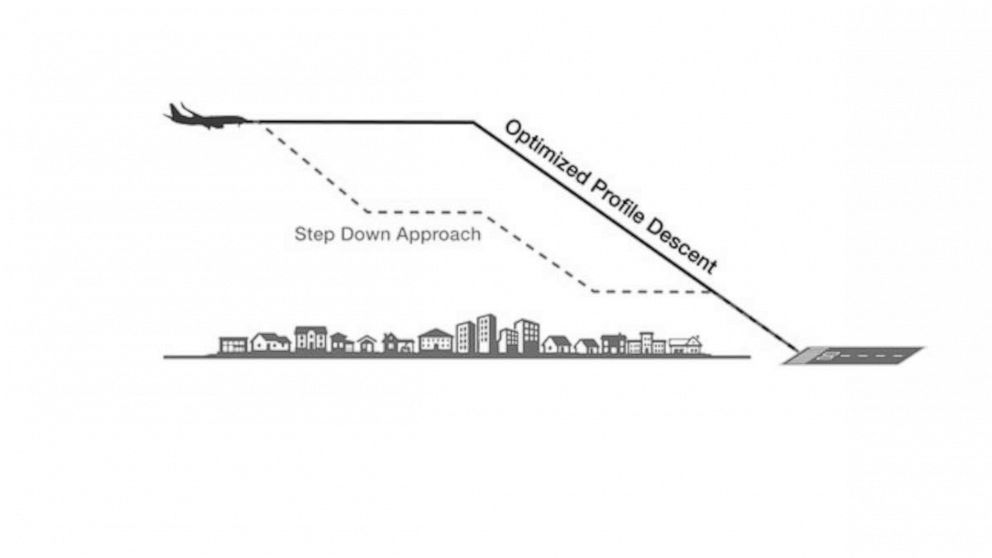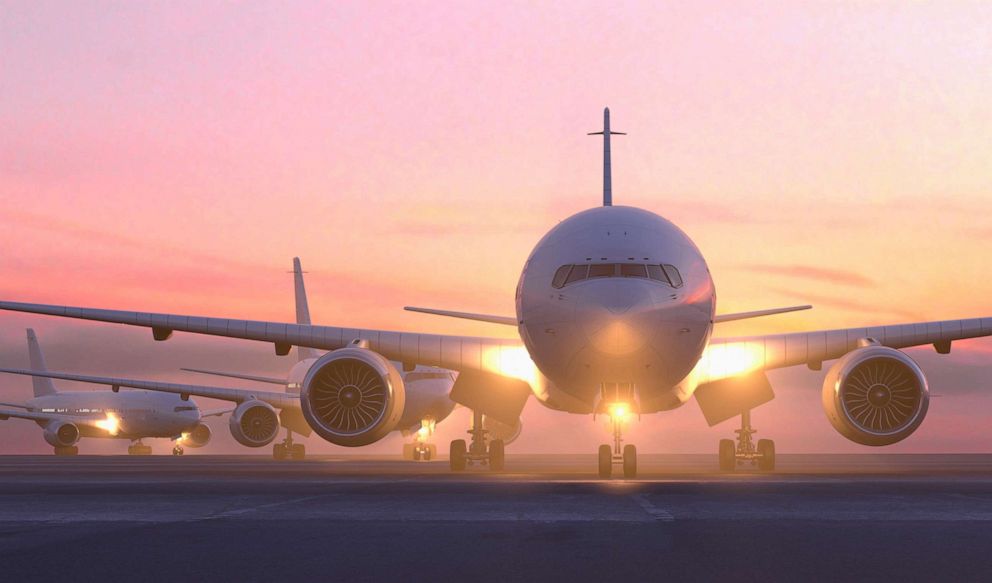FAA to change how some planes land in effort to cut emissions
The move is part of the FAA's net-zero emissions goal by 2050.
In an effort to cut emissions, the Federal Aviation Administration announced it's changing the way some planes land at U.S. airports.
Currently, most planes that land at airports descend in a stair-step method, where aircraft repeatedly level off and power up the engines during the descent. Under the agency's new 42 Optimized Profile Descents, or OPDs, planes will instead descend from cruising altitude to the runway in a smoother, continuous path with engines set at near idle.
"If you just think about what takes more energy, walking down the stairs or sliding down a slide, that's basically what the plane is doing," FAA spokesperson Matthew Lehner said in an interview with ABC News.

The move is part of the agency's work to achieve a net-zero greenhouse gas emissions aviation sector by 2050 -- part of Transportation Secretary Pete Buttigieg's U.S. Aviation Climate Action Plan announced at the United Nations Climate Change Conference last November.
"There's less fuel burn as you're sliding down toward the approach to the airport," Lehner said. "It also means with less fuel burning you get less emissions in the air."

In 2013, researchers with the FAA and the Georgia Institute of Technology found OPDs cut about 41 million pounds of carbon dioxide emissions and 2 million gallons of jet fuel at Los Angeles International Airport in one year, which is equivalent to cutting 1,300 flights from Atlanta to Dallas, the FAA said.
The FAA implemented OPDs at various airports across the country in 2021, including Dallas-Fort Worth International Airport, Miami International Airport and Florida's Orlando International Airport. This year, it plans to implement the descents at New York's LaGuardia Airport, Missouri's Kansas City International Airport and Omaha, Nebraska's Eppley Airfield. It is also adding additional routes at Orlando International Airport.
In addition to cutting emissions, the agency said passengers might notice a smoother, quieter approach with the engine not revving throughout its descent. The continuous landing technique is also quieter for areas surrounding airports.




